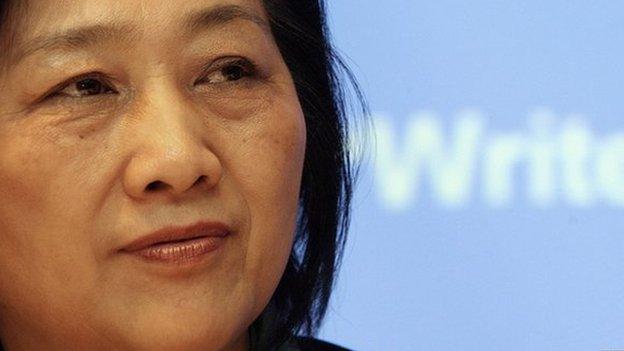China jails journalist over leaked 'state secrets'
- Published
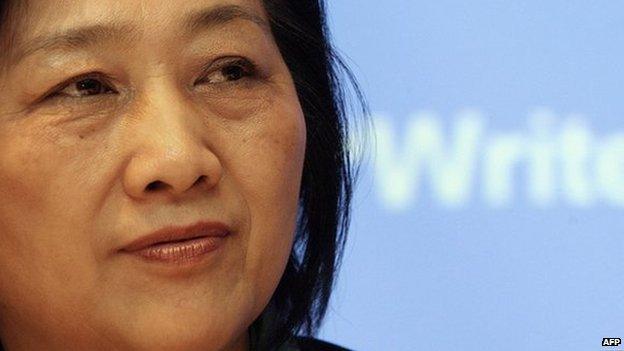
Authorities say Gao Yu leaked a sensitive document that was then widely reposted abroad
China has jailed a top journalist for seven years for leaking a confidential paper to a foreign website.
Gao Yu, 71, had "illegally provided state secrets to foreigners", the court in Beijing said.
China has not confirmed which document the case relates to, but it is thought to be a Communist Party strategy paper known as "Document No 9".
The paper is said to call for aggressive restrictions on democracy, civil society and the press.
Amnesty International called the sentence "an affront to justice".
Gao was "the victim of vaguely worded and arbitrary state-secret laws that are used against activists as part of the authorities' attack on freedom of expression", said William Nee, China researcher at the rights group.
Shang Baojun, one of her lawyers, said they were "very disappointed" with the verdict and would appeal.

Analysis: Celia Hatton, BBC News, Beijing
Gao is a rarity in China - an outspoken reporter who chose to work outside the mainstream state media outlets. She filed Chinese language stories to overseas media outlets that were eager to publish her insights.
She was also unusual because she appeared to have access to relatively high-level information about the Chinese government and the ruling Communist Party. Though that does not mean, her lawyers insist, that she is guilty of leaking state secrets.
Somewhat ironically, the internal Communist Party memo Gao is said to have leaked warns of the dangers posed by "Western-style" media outlets.
"Some people, under the pretext of espousing 'freedom of the press' promote the West's idea of journalism," the document reads.
"The ultimate goal of advocating the West's view of the media is to hawk the principle of abstract and absolute freedom of press, oppose the Party's leadership in the media, and gouge an opening through which to infiltrate our ideology."

'Confession'
Gao was detained in April 2014. Weeks later, state television network CCTV aired a video of Gao, her face blurred, admitting she made a "big mistake".
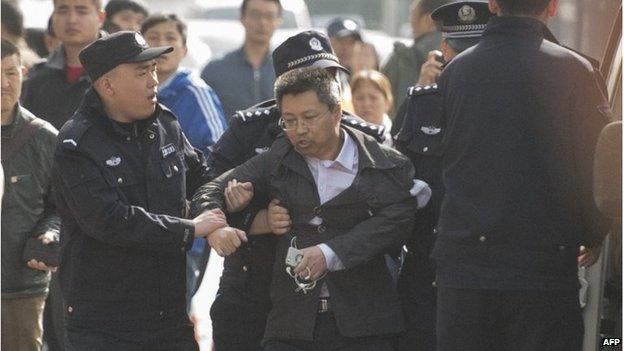
There was tight security outside the court as the verdict was due to be delivered
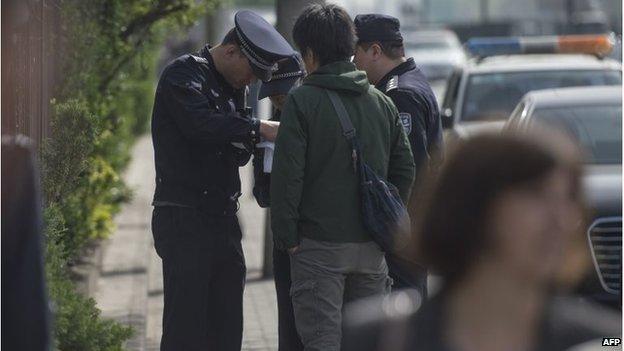
Police stopped this Japanese journalist and deleted images on his camera
Gao's lawyers said she made the statement after police threatened her son. She was then put on trial in November.
Another of her lawyers, Mo Shaoping, told the BBC the forced confession was invalid and would form the basis of the appeal.
The highly respected journalist, who has written for media in Hong Kong and elsewhere, has already been imprisoned in the 1990s.
She was convicted of sending party documents, including a speech by then-President Jiang Zemin, to a Hong Kong newspaper.
Gao's sentencing comes amid a widespread crackdown on freedom of speech in China, reports the BBC's Celia Hatton in Beijing.
According to media advocacy group the Committee to Protect Journalists, she is one of 44 Chinese journalists behind bars.
The group says that China now has more journalists in prison than any other country.
- Published20 November 2014
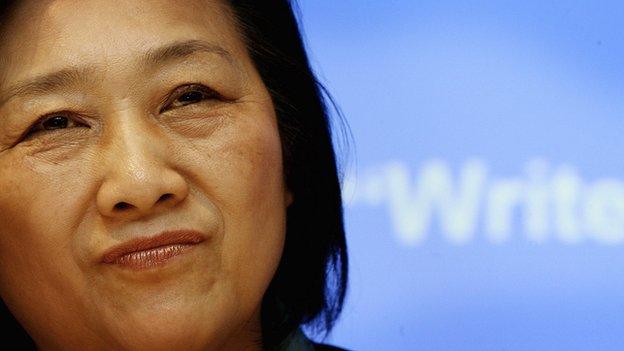
- Published8 May 2014
